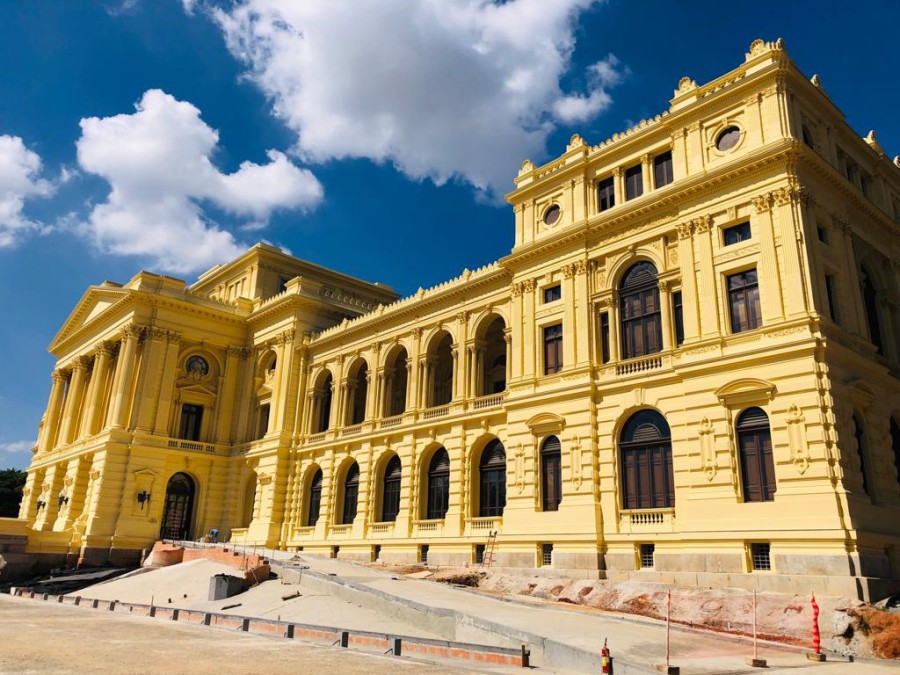Completed in time to celebrate the 200th anniversary of Brazilian independence, the Paulist Museum of the University of São Paulo (Brazil), commonly known as the Ipiranga Museum, reopened its doors in September 2022. The Penetron System was implemented to waterproof all below-grade concrete structures of the expanded complex.
First inaugurated 127 years ago, the Ipiranga Museum symbolizes the history of Brazil, especially the city of São Paulo. It was built on the site where Dom Pedro I, Brazil’s first monarch, declared the country’s independence from Portugal in 1822.
The $45m renovation project, designed and managed by the Brazilian-Italian architect, Tommaso Gaudencio Bezzi, added more exhibition space—increasing from 12 to 49 galleries—audiovisual areas, immersive rooms, interactive spaces, as well as the restoration of the Versailles-inspired garden in front of the museum.
“The Ipiranga Museum was closed for almost 10 years to complete the renovation work that was urgently needed,” says Cláudio Neves Ourives, CEO and Managing Partner of Penetron Brazil. “Today, it holds a vast collection of over 450,000 objects and artworks related to the imperial Brazilian era, most dating from the 19th and 20th centuries but also including colonial-era pieces.”
During the lengthy construction phase, the main museum complex underwent extensive restoration work, which also included the addition of an entirely new building.
The Penetron System was specified to treat the Ipiranga Museum’s below-grade structures in the main complex and for the new building. PENETRON ADMIX, a crystalline concrete waterproofing admixture, was added to the shotcrete application on the museum’s basement walls and all the rooms, beams, and tunnels in the area. The ready-mix concrete suppliers provided PENETRON ADMIX-treated concrete needed for the foundation slab and retaining walls of the new building. PENEBAR SW waterstop strips were installed to seal all non-moving construction joints.
Once the Penetron System is topically applied or mixed into the concrete, it becomes an integral part of the concrete matrix, making concrete impermeable and substantially more durable. No further maintenance or treatment is required due to the continuous self-healing abilities of the Penetron crystalline technology.
"The Ipiranga Museum is but one of many museums where Penetron was successfully used. The list includes the Salvador Dali Museum in St Petersburg, Florida, the National Museum of Contemporary Art in Athens, Greece, and The Art Gallery of New South Wales in Sydney, Australia, just to name a few,” adds Cláudio Neves Ourives. “With the Penetron-treated impermeable concrete structures now in place, the expanded Ipiranga Museum complex will celebrate Brazilian history for the next 127 years!”

The home of Brazilian history: The renovated and expanded Ipiranga Museum, now 127 years old, specified the Penetron System to provide concrete durability and protect against deterioration.
